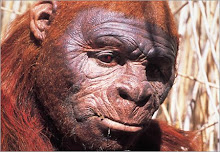Afasta de mim esse cálice
ISRAEL QUER agora exportar vinho "de qualidade", diz a nota da Reuters abaixo. Eu até gostaria de provar, porque o clima da região é adequado. Mas é bom lembrar que o vinho é feito com a água que eles roubam da Palestina, então sugiro um boicote.
Israeli wine has long stirred up associations with the syrupy libations of religious rituals, but modern techniques imported from top winemaking nations are now helping it find space on shelves from Paris to New York.‘Today, you’ll find that people are looking for Israeli wines that meet international standards and the good thing is we are actually producing wines like that,‘ Israeli wine critic Daniel Rogov says in an interview at a busy Tel Aviv wine shop.‘There is no contradiction between wines that are kosher and wines that are excellent‘.Israeli wineries, both industrial-scale and boutique, make over 33 million bottles a year, according to the Israeli Wine Council, but the vast majority of Israeli wine is kosher or made in accordance with Jewish dietary laws.Whilst the rabbinical seal has long been associated with wines made to appeal to observant Jews rather than connoisseurs, the quality of Israeli wines is improving, helped by government incentives for smaller producers, and some vintages are now garnering international plaudits.Robert Parker, among the world’s most influential wine critics, has heaped praise and points on some 40 Israeli wines. Fourteen of them won more than 90 out of a maximum 100 points in Parker’s rating system.Wines from neighbouring Lebanon, which traces its winemaking industry back over 4,000 years, have been winning international awards for decades. Israel enjoys the same Mediterranean climate.Weighing in with 93 points was the red 2003 Yatir Forest label from a subsidiary of Carmel Winery.Founded by the Baron Edmond James de Rothschild, an early 20th-century Zionist philanthropist, Carmel is Israel’s largest winery, accounting for 40 percent of the Jewish state’s contemporary wine market.But along with many of its 200-odd rival Israeli wineries, Carmel has recently been applying methods learned from France, Australia and California, to locally grown grapes.‘Our chief winemaker studied in France, so we’ve learnt from the traditions of France but we also make use of the technologies from places like Australia and California,‘ Adam Montefiore, marketing director for Carmel Winery, said at a wine festival in Jerusalem this month.‘We feel in the last 10, 15 years, Israeli wines are really making world class wines.‘Montefoire says Carmel produces a range of wines both for those who want to ‘drink wine without tasting it‘ and for connoisseurs. Prices range from $10 to $100 a bottle. Half of Carmel’s annual production of 15 million bottles is exported to the United States, Europe and Asia.Israel exports roughly $22 million dollars worth of wine a year, according to the Central Statistics Bureau.
Israeli wine has long stirred up associations with the syrupy libations of religious rituals, but modern techniques imported from top winemaking nations are now helping it find space on shelves from Paris to New York.‘Today, you’ll find that people are looking for Israeli wines that meet international standards and the good thing is we are actually producing wines like that,‘ Israeli wine critic Daniel Rogov says in an interview at a busy Tel Aviv wine shop.‘There is no contradiction between wines that are kosher and wines that are excellent‘.Israeli wineries, both industrial-scale and boutique, make over 33 million bottles a year, according to the Israeli Wine Council, but the vast majority of Israeli wine is kosher or made in accordance with Jewish dietary laws.Whilst the rabbinical seal has long been associated with wines made to appeal to observant Jews rather than connoisseurs, the quality of Israeli wines is improving, helped by government incentives for smaller producers, and some vintages are now garnering international plaudits.Robert Parker, among the world’s most influential wine critics, has heaped praise and points on some 40 Israeli wines. Fourteen of them won more than 90 out of a maximum 100 points in Parker’s rating system.Wines from neighbouring Lebanon, which traces its winemaking industry back over 4,000 years, have been winning international awards for decades. Israel enjoys the same Mediterranean climate.Weighing in with 93 points was the red 2003 Yatir Forest label from a subsidiary of Carmel Winery.Founded by the Baron Edmond James de Rothschild, an early 20th-century Zionist philanthropist, Carmel is Israel’s largest winery, accounting for 40 percent of the Jewish state’s contemporary wine market.But along with many of its 200-odd rival Israeli wineries, Carmel has recently been applying methods learned from France, Australia and California, to locally grown grapes.‘Our chief winemaker studied in France, so we’ve learnt from the traditions of France but we also make use of the technologies from places like Australia and California,‘ Adam Montefiore, marketing director for Carmel Winery, said at a wine festival in Jerusalem this month.‘We feel in the last 10, 15 years, Israeli wines are really making world class wines.‘Montefoire says Carmel produces a range of wines both for those who want to ‘drink wine without tasting it‘ and for connoisseurs. Prices range from $10 to $100 a bottle. Half of Carmel’s annual production of 15 million bottles is exported to the United States, Europe and Asia.Israel exports roughly $22 million dollars worth of wine a year, according to the Central Statistics Bureau.

